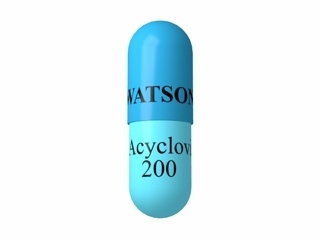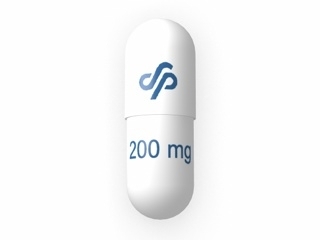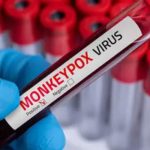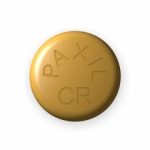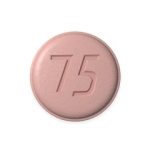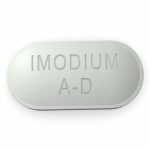Monkeypox
Currently, the largest number of monkeypox cases are observed in Central and East Africa. This region is the main source of clade I virus, which causes more severe disease compared to other variants of the virus.
In addition, outbreaks continue to be reported in other parts of the world, including countries in Europe and the Americas, where cases have also been reported, but in smaller numbers.
Clade I of the monkeypox virus is one of the genetic variants of the virus and is considered more virulent compared to other clades, such as clade II. This variant of the virus causes more severe disease and has a higher mortality rate, especially among children and immunocompromised individuals.
This variant of the virus is associated with severe symptoms such as fever, widespread rash, lymphadenopathy, and possible complications, including secondary infections.
The situation in Africa is particularly alarming due to limited access to medical resources and testing, making it difficult to control the spread of the infection. The spread of clade I is of concern because it is more severely transmitted and cases have recently begun to appear outside Africa, such as in Sweden, suggesting the possibility of further global spread.
The first signs of monkeypox:
- Fever: This is often the first symptom, usually appearing 5 to 21 days after exposure to the virus. The fever is usually high and accompanied by a general feeling of illness.
- Headache: The onset of the disease is often accompanied by a severe headache.
- Muscle aches: Muscle and back pain are also common symptoms.
- Swollen lymph nodes: One of the key signs that distinguishes monkeypox from other similar diseases, such as chickenpox. The lymph nodes may swell in the neck, armpits, or groin.
- Rash: About 1 to 3 days after the fever starts, a rash appears. It usually starts on the face, then spreads to other parts of the body, including the palms of the hands and soles of the feet. The rash goes through several stages, from spots to blisters and crusts.
The intensity and duration of these signs may vary depending on the patient’s health and the severity of the infection.
The course of monkeypox may differ between children and adults in several ways:
- Severity of the disease:
Children: Children often become sicker than adults, especially infants and young children. This is because they have weaker immune systems and are at higher risk for complications, such as secondary bacterial infections or organ damage.
Adults: Adults usually have a milder illness, although people with weakened immune systems or chronic medical conditions may experience severe illness. - Symptoms and severity:
Children: Children tend to have higher fevers, headaches, muscle aches, and swollen lymph nodes. The rash in children is often more extensive and may be more painful.
Adults: Adults may have milder symptoms and may recover more quickly. However, some adults may experience severe pain from the rash, especially if it spreads to sensitive areas of the body. - Complications:
Children: Children are at higher risk of complications, such as dehydration from vomiting and diarrhea, and serious secondary bacterial skin infections.
Adults: Adults have a lower risk of complications, but in people with weakened immune systems or other vulnerable groups (such as pregnant women), complications can be serious, including pneumonia or sepsis. - Immune Response:
Children: Children’s immune systems are still developing, so their bodies may be slower to respond to infection, increasing the duration and severity of the disease.
Adults: Adults, especially those previously vaccinated against smallpox, may have partial immunity, which helps reduce the severity and duration of the disease.
So the main difference is the severity of the disease and the risk of complications, which are significantly higher in children, especially the youngest, compared to adults.
Antiviral drugs approved for the treatment of monkeypox
Tecovirimat (TPOXX, also known as ST-246): This drug has been approved by the FDA for the treatment of monkeypox. It works by inhibiting a viral protein needed to form the outer shell of the virus, preventing it from replicating and spreading in the body.
Cidofovir: This antiviral drug is used to treat a variety of DNA virus infections, including monkeypox. Cidofovir works by inhibiting viral DNA polymerase, which prevents the virus from replicating.
Brincidofovir (BCV): This is a newer analogue of cidofovir that has also shown efficacy against the monkeypox virus. Its advantages include a lower risk of nephrotoxicity compared to cidofovir.
These drugs are used depending on the clinical situation and the severity of the disease. Treatment for monkeypox also includes supportive care to relieve symptoms and prevent complications.
If you don’t take antiviral drugs for monkeypox, the following may occur:
- Long-term and severe illness:
Without treatment, the illness may last longer and have more severe symptoms, such as fever, pain, and a widespread rash. There may also be a higher chance of developing severe forms of the disease. - Increased risk of complications:
Patients, especially children, the elderly, and people with weakened immune systems, are at increased risk of developing complications, such as secondary bacterial skin infections, dehydration, pneumonia, and sepsis. These complications can be life-threatening and require intensive medical care. - Transmission to others:
Untreated patients may remain infectious longer and pose a greater risk to others, especially in families or communities with close contact. - Long recovery:
Recovery without antiviral treatment may take longer, and the patient may experience post-infection complications such as weakness, chronic fatigue, or long-term pain from skin lesions. - Risk of death:
In rare cases, especially in severe cases, lack of treatment may lead to death, especially in high-risk individuals.
Antiviral drugs can significantly reduce the severity of symptoms, reduce the risk of complications, and speed up recovery. Therefore, ignoring monkeypox treatment can lead to serious health consequences.




